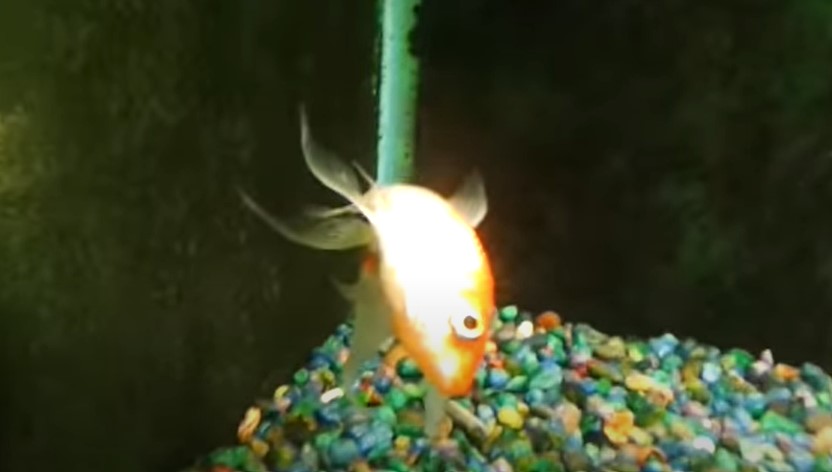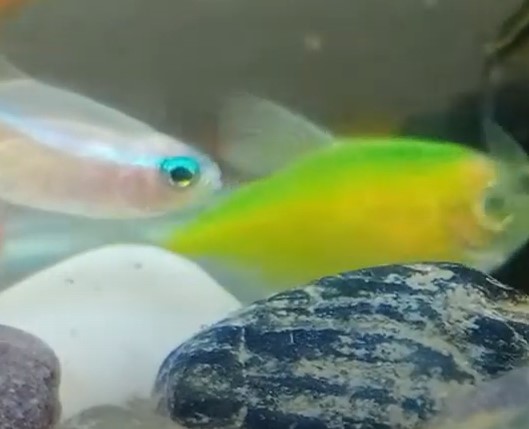Why Are My Glofish Dying
Glofish are known for their vibrant colors and playful nature. However, it can be distressing to see your beloved fish pass away unexpectedly. If you are wondering why are my glofish dying, this guide provides some helpful insights.
Understanding Common Pain Points Related to Glofish Deaths
Having a fish pass away can be a traumatic experience for pet owners. Not only do we form connections with our pets, but we may also feel guilty about not providing adequate care. Glofish can die for various reasons, including poor water quality, improper tank size, and disease. However, identifying the root cause of the problem can help prevent future deaths and increase long-term fish health.
Answering the Question of Why Are My Glofish Dying
The most common reason for glofish deaths is poor water quality. Aquarium water requires regular maintenance to keep it free of harmful chemicals and bacteria. Inadequate filtration, overfeeding, and overcrowding can contribute to the buildup of toxins and pollutants, which can cause stress and disease in fish. Other factors that can harm glofish health include sudden temperature changes, improper diet, and aggressive tankmates.
Summarizing Main Points Related to Glofish Deaths
To sum up why are my glofish dying, the answer lies in proper fish care. Maintaining a clean and healthy tank environment, providing adequate space and nutrition, and monitoring fish behavior for signs of illness or aggression can help prevent glofish deaths. Regular water testing and frequent partial water changes are also essential for optimal fish health.
Personal Experience with Glofish Death
As a pet owner, I have experienced the heartbreak of losing a glofish firsthand. One of my favorite fish suddenly became lethargic and stopped eating, despite my best efforts to provide ideal living conditions. After consulting with a veterinarian and performing water tests, I discovered that my tank's ammonia and nitrate levels were dangerously high. I immediately did a partial water change and added additional filtration, which helped improve water quality and save my other fish.
Glofish Death and Aggressive Tankmates
Another common problem that can lead to glofish death is aggressive tankmates. Glofish are typically peaceful fish that enjoy social interaction with their own species. However, certain fish breeds may view glofish as easy targets or territorial threats. An example of aggressive tankmates include fish like angelfish, cichlids, and bettas can attack, harass and even kill glofish. It is essential to research and carefully select compatible tankmates to avoid interspecies conflict.
How to Handle Glofish Disease to Prevent Death
Disease is another factor that can contribute to glofish deaths. Common diseases and ailments that affect glofish include swim bladder disease, dropsy, and fin rot. It's essential to carefully monitor fish behavior for signs of lethargy, loss of appetite, and unusual swimming patterns. Quarantining sick fish, performing regular water changes, and upkeeping good fish hygiene can also minimize the risk of infection and disease in glofish.
Preventative Measures for Protecting Glofish from Death
Finally, it is crucial to take preventative measures to protect glofish from death. This includes investing in a suitable tank size, selecting compatible tankmates, providing a varied and balanced diet, and maintaining a clean and healthy living environment. Regularly monitoring water quality and fish behavior can also help detect problems early and prevent long-term complications.
Question and Answer Section
Q: Can overfeeding cause glofish death?
A: Yes, overfeeding is a leading cause of poor water quality, which can harm fish health and ultimately cause glofish death.
Q: Can glofish live in a bowl?
A: No, glofish require proper filtration, aeration, and space to swim and thrive. A bowl does not provide adequate living conditions for glofish.
Q: What is the ideal water temperature for glofish?
A: Glofish prefer water temperature between 72-78°F (22-26°C).
Q: What can I do if my glofish is already sick?
A: It's important to identify the disease or ailment and take appropriate measures, including quarantining sick fish and treating with medication or salt baths. Consult with a veterinarian or an aquatic specialist for optimal treatment options.
Conclusion
Glofish are delightful pets with unique personalities and stunning colors. If you are wondering why are my glofish dying, remember that identifying and addressing the root cause of fish death can help prevent future losses. By following proper fish care guidelines, including regular maintenance, good water quality, and compatible tankmates, you can enjoy healthy and happy glofish for years to come.
Gallery
Why Are My Glofish Dying? How Do I Prevent It?

Photo Credit by: bing.com /
Why Is My Glofish Turning White? Is It Dying?

Photo Credit by: bing.com /
Why Is My Glofish Turning White? Is It Dying?

Photo Credit by: bing.com /
Why Did My Glofish Die? One Too Many Mistakes!

Photo Credit by: bing.com /
Why Are My Glofish Dying? How Do I Prevent It?

Photo Credit by: bing.com /
